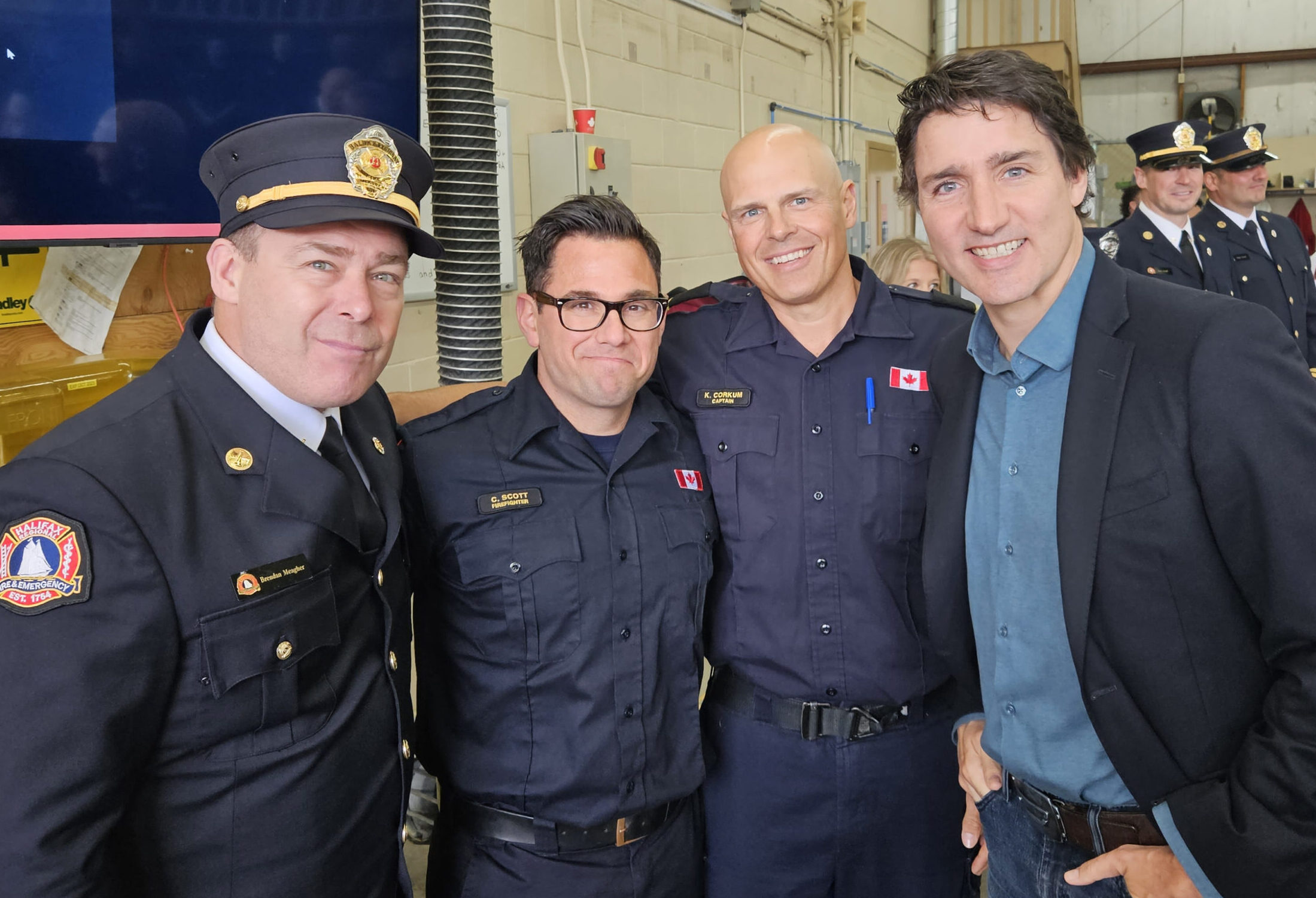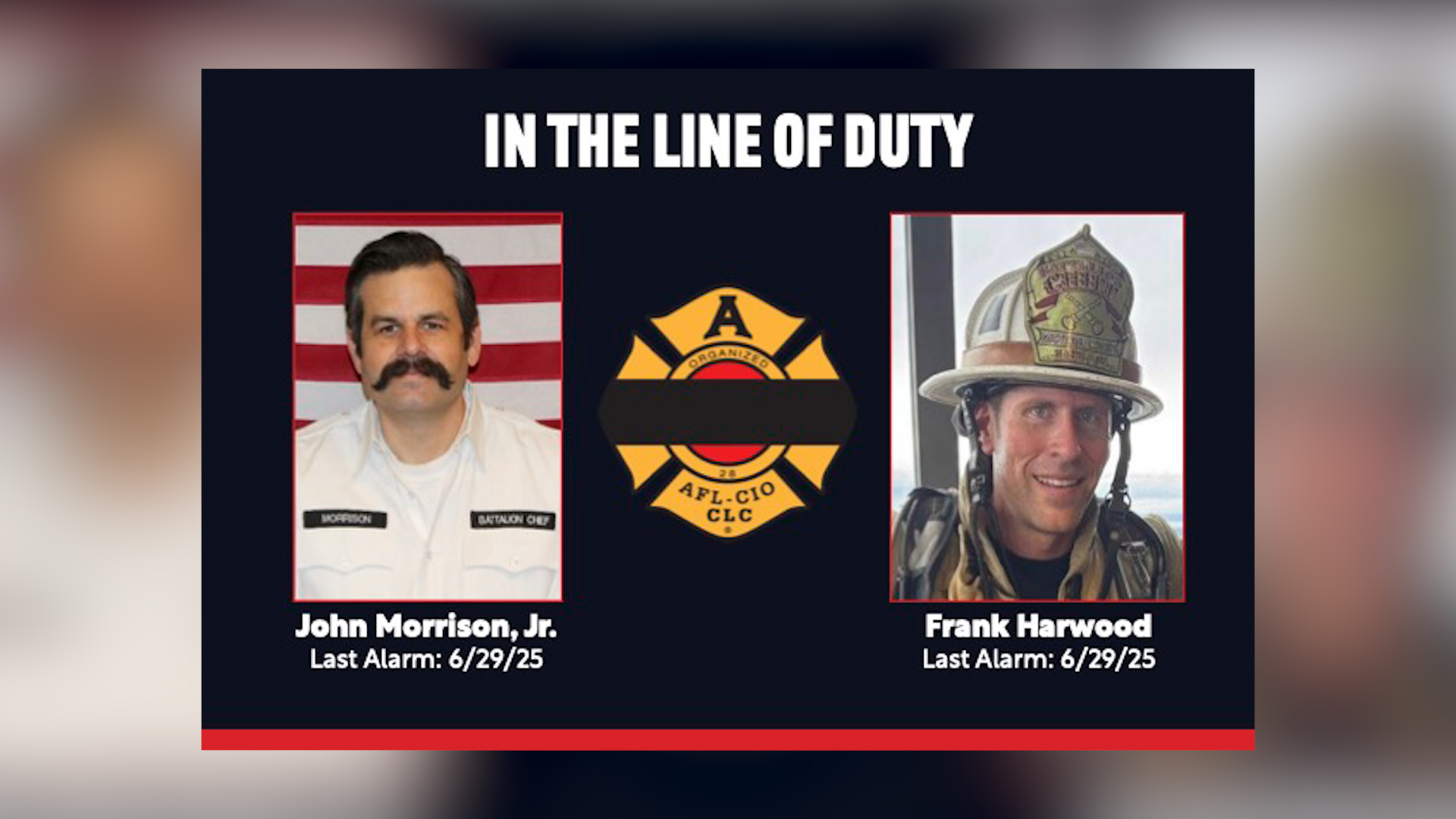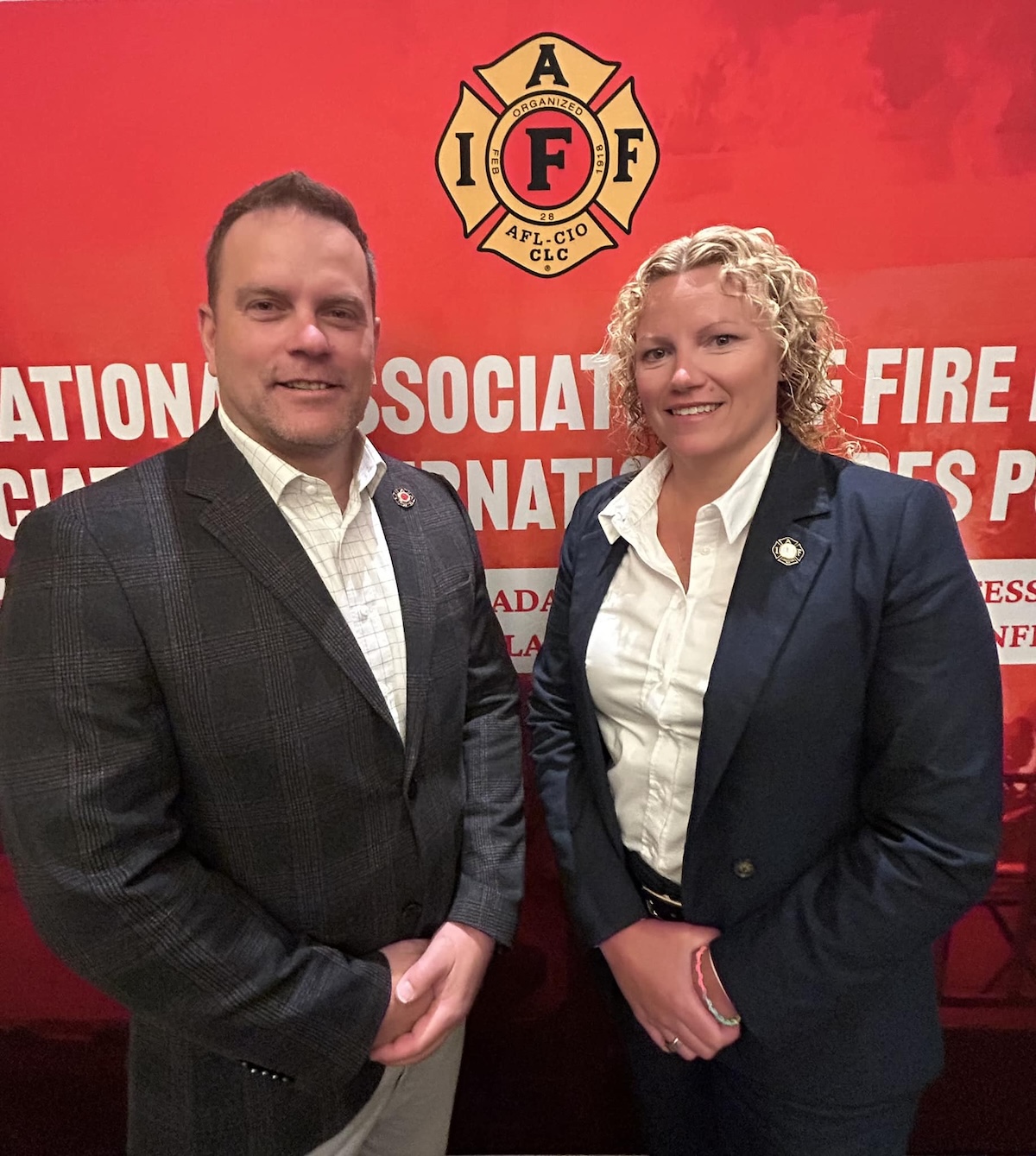
Canadian Prime Minister Justin Trudeau toured a fire station in Halifax, Nova Scotia Monday and thanked IAFF Local 268 members for their heroic and difficult work battling the wildfires that ravaged suburban areas of the city in the past three weeks.
“Thank you for all the amazing work you did, pulling together in difficult times, being there for the community,” Trudeau told fire fighters. “I know you’re in very scary situations regularly, and Canadians rely on you so deeply for everything you do.”
Accompanied by Emergency Preparedness Minister Bill Blair and Nova Scotia MPs Lena Metlege Diab and Sean Fraser, Trudeau visited areas of Halifax impacted by the wildfires, which erupted suddenly on May 29, forcing thousands of residents to evacuate and destroying or damaging 150 structures. Three IAFF members lost their homes and received assistance through the IAFF Foundation’s Disaster Relief program.
During his visit, Prime Minister Trudeau commended two Local 268 members, Kevin Corkum and Conor Scott, who risked their lives to rescue an elderly man inside an active wildfire zone, and later attended a first responder appreciation event.
He also pledged that the government would stand behind fire fighters as they face wildfires and other dangers going forward. “I want you to know how much everyone appreciates it and as governments, we will continue to be there to support you and your families as you continue the work of keeping us safe.”
The Prime Minister’s visit came just two weeks after the Government of Canada agreed to fund a one-year pilot project for the IAFF’s Responding to the Interface wildfire response training program.
Canada has faced an unprecedented start to the wildfire season with more than 11 million acres burned this spring alone, and officials scrambling to find crews to fight the blazes. Wildfires struck early in British Columbia and Alberta, and more recent fires in Ontario and Quebec sent smoke into major cities across eastern Canada and the United States. The wildfire outlook is expected to remain severe as hot, dry weather settles in across Canada during the summer months.



